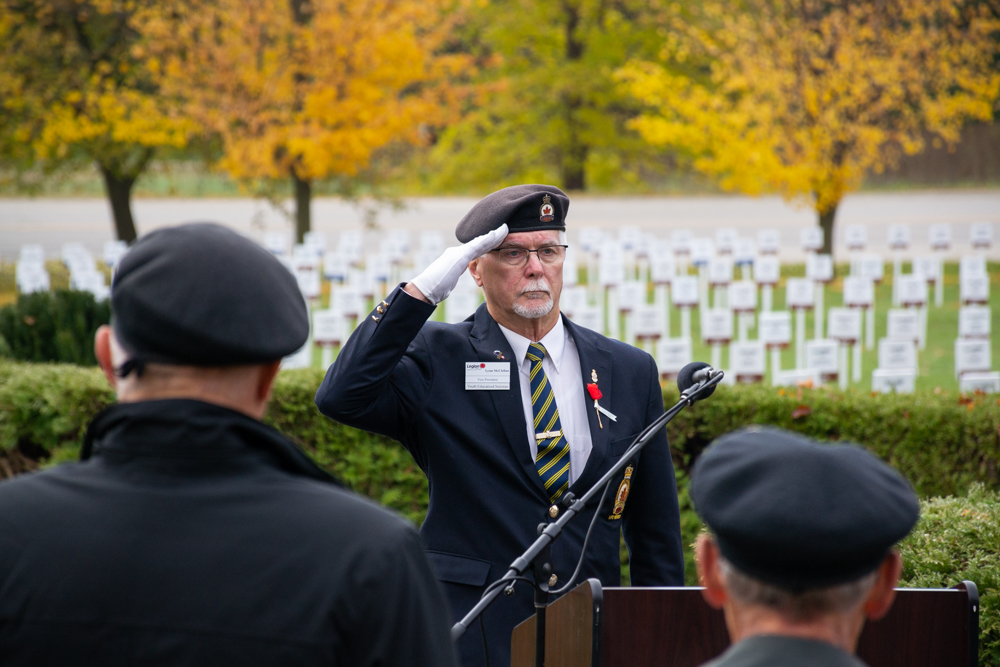ABOYNE – Members from local branches of the Royal Canadian Legion gathered in front of the Wellington County Museum and Archives carrying out a Nov. 5 mission of remembrance in the name of the county’s war fallen—lest their lives become a mere historical footnote.
“It’s important to remember that these brave individuals gave their lives for a noble purpose to protect the values that Canada holds sacred,” county Warden Kelly Linton said in his opening remarks.
“Over the decades, brave Canadian soldiers have stood shoulder to shoulder with their allies against aggressors, who have threatened our shared sacred values … These values need to be as important today as they were when these brave Canadians fought and died for them in years gone by.”
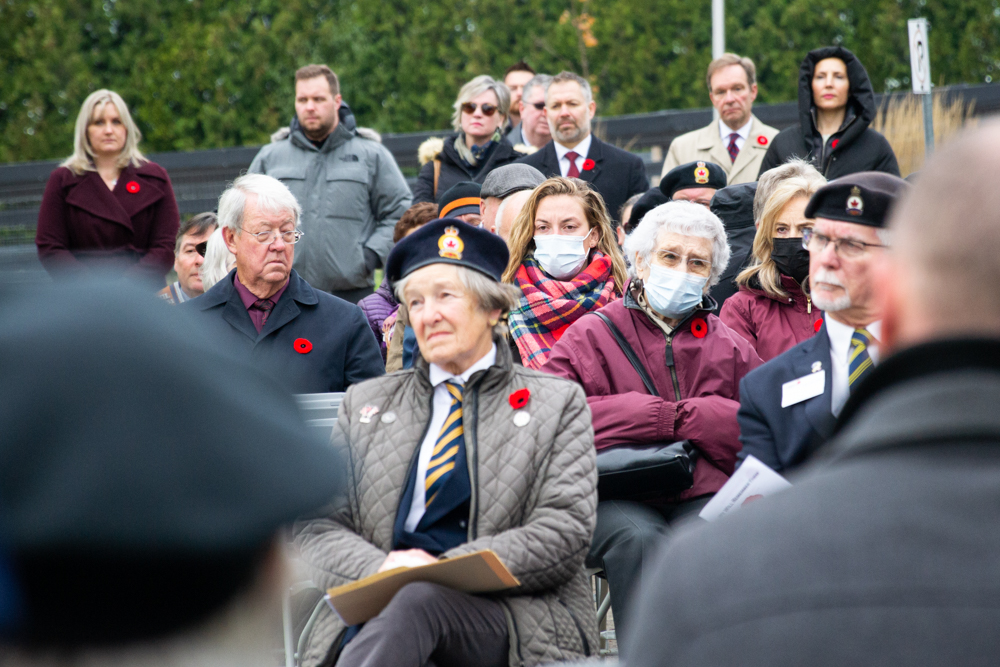
Attendees at the County of Wellington’s Remembrance Day ceremony held at the Wellington County Museum and Archives on Nov. 5, 2021. Photo by Jordan Snobelen
Leaves split from their branches by the November cold drifted onto beds of yellow in the background as the names of the dead were brought to life on the tongues of Legion members before gathered veterans, families, county staff, politicians and reporters.
“Edward Arnold, Andrew John Battel, Alfred Bond, John Henry Bowman” – and so the roll call began. Name after name was spoken until all had fallen on listening ears.
Uwe Claussen exhaled through pursed lips trumpeting the Last Post, as he has for a decade now, followed by bagpipes piercing the air with a lament for the dead.
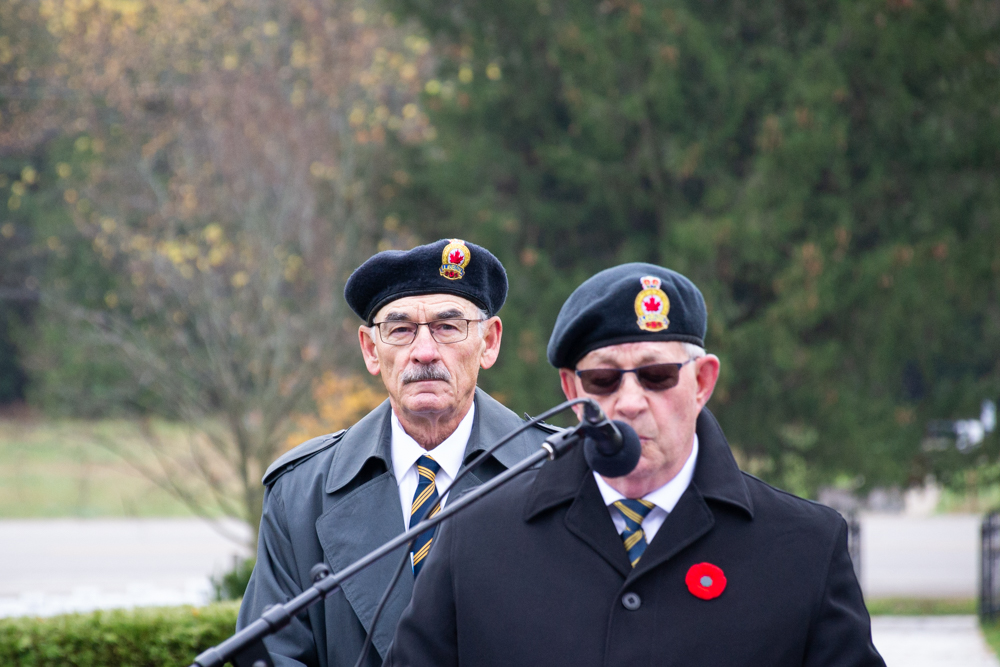
Members of Wellington Legions read the names of the county’s war dead at the Wellington County Museum and Archives on Nov. 5, 2021. Photo by Jordan Snobelen
Only the streaming of cars along Wellington Road 18 at the base of the grounds beyond could be heard in the moments of silence that followed.
A solemn and at once beautiful, undisturbed silence fell over the individuals bowing heads with minds stirred in quiet acts of remembrance—a quiet that can only be known by those who are free and at peace.
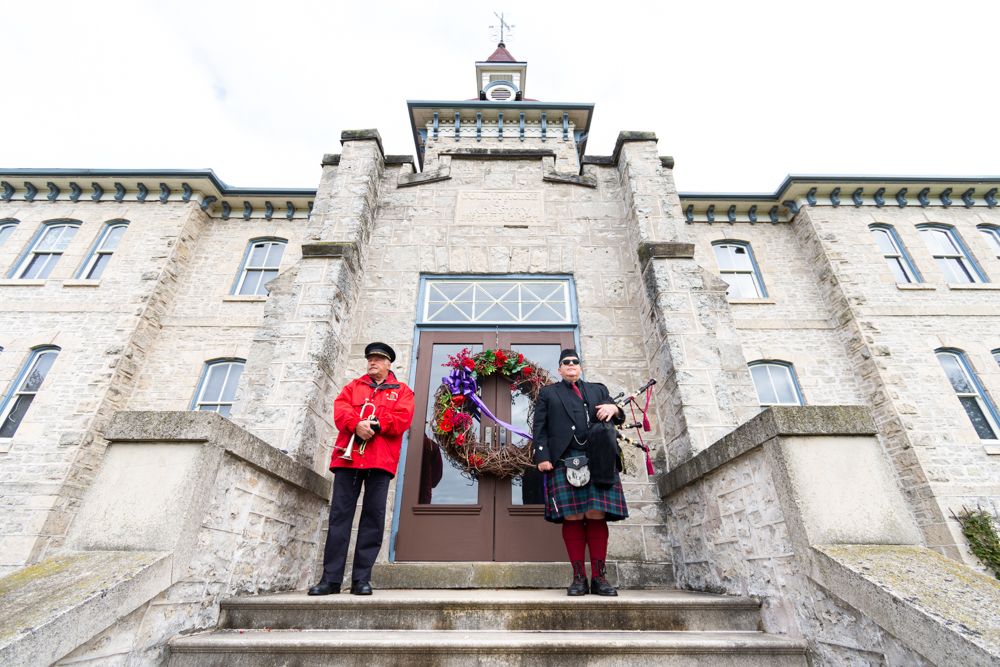
The Wellington County Museum and Archives. Photo by Jordan Snobelen
Following the ceremony, walking among markers placed at the museum grounds that bear the 500 names of the county’s fallen was Bob Jackson.
The Elora resident looked on at names and ages, some unbearably young, and the locations of the cemeteries where the war dead lay the world over.
He pointed at one with the name of a cemetery in France where his uncle, reportedly killed by shrapnel in the Second World War, is buried.
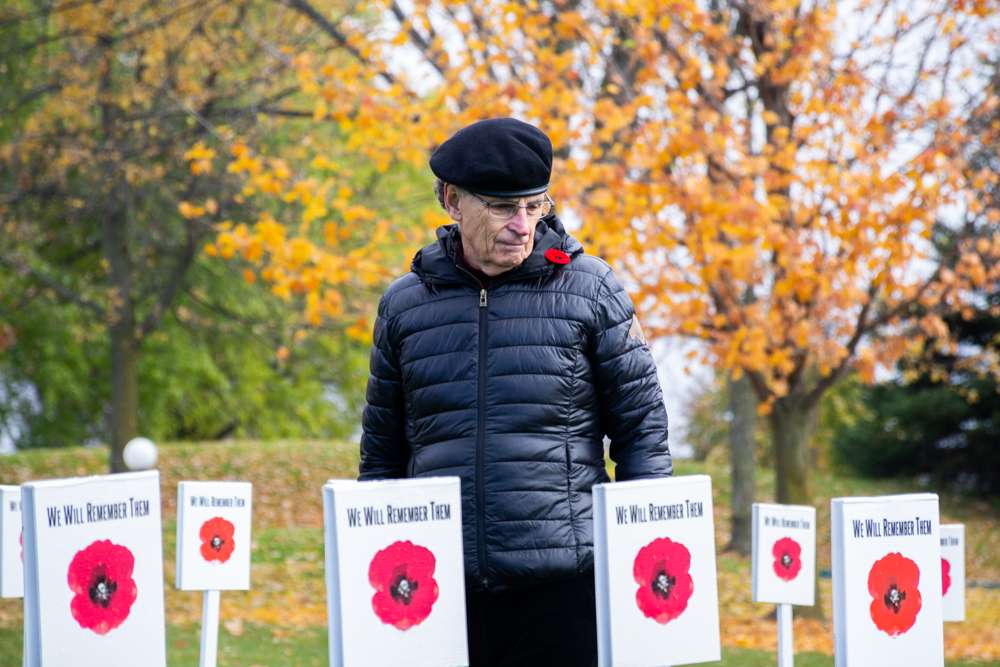
Veteran and Elora resident Bob Jackson walks through markers bearing the names of the county’s war dead at the Wellington County Museum and Archives on Nov. 5, 2021. Photo by Jordan Snobelen
“My father was in the 48th Highlanders of Canada, he joined as a private in 1939,” Jackson said.
His father, Victor George Jackson, survived through Italy and Germany, left the military as a regimental sergeant major and lived until his death at 80 years old. He is buried at the Mount Pleasant cemetery in Toronto.
“He saw a lot of combat,” Jackson remarked.
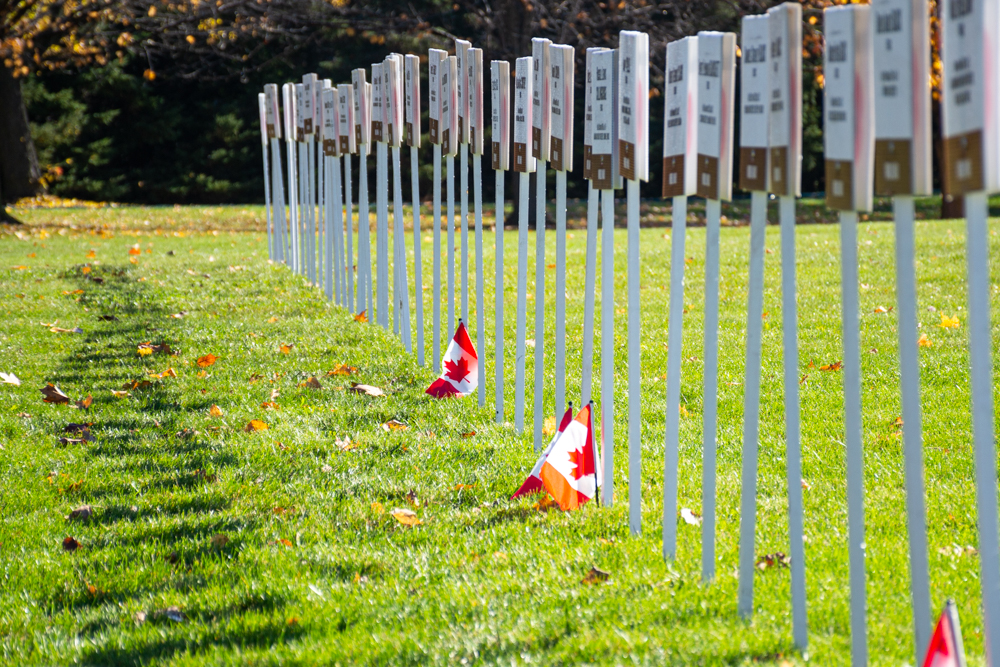
At the Wellington County Museum and Archives, 500 markers bear the names of the county’s war dead. Photo by Jordan Snobelen
“He told me a lot about what happened—I was fortunate because he did talk about it.”
Jackson went on to serve in the Canadian Forces from 1966 to 1980 and his brother served for 37 years.
At 74 years old, Jackson said he notices the young ages listed on the markers of the dead, calling it a “tragedy.”
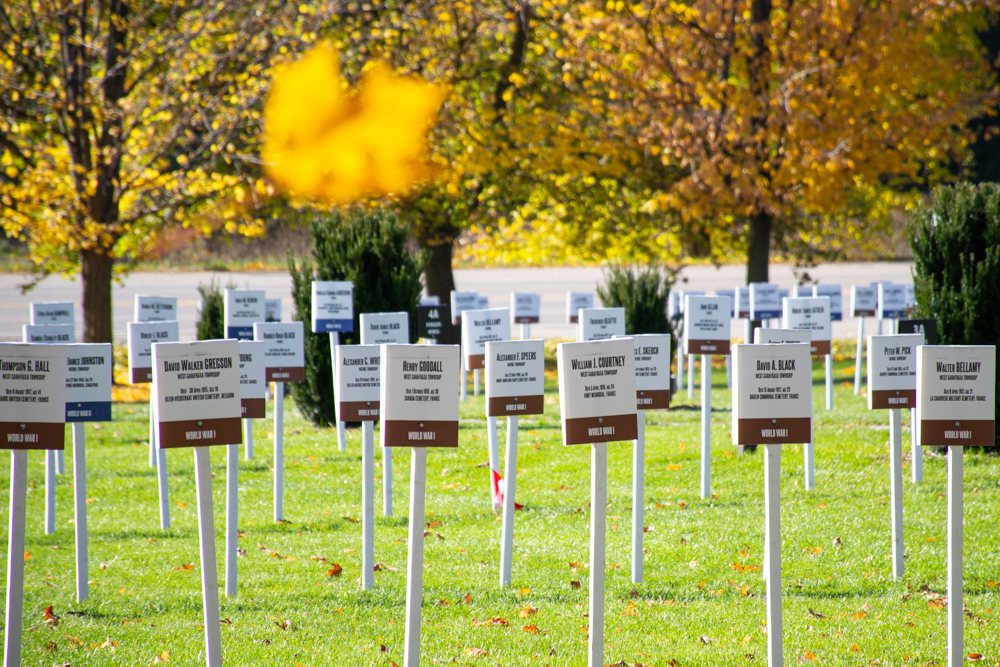
A leaf falls from a tree at the Wellington County Museum and Archives where 500 markers are placed bearing the names of the county’s war dead on Nov. 5. Photo by Jordan Snobelen
“It was a huge commitment they all made,” he said, remarking of life, “It’s a limited time offer.”
For Jackson, he’s come to pay his respects as he does every year at this time.
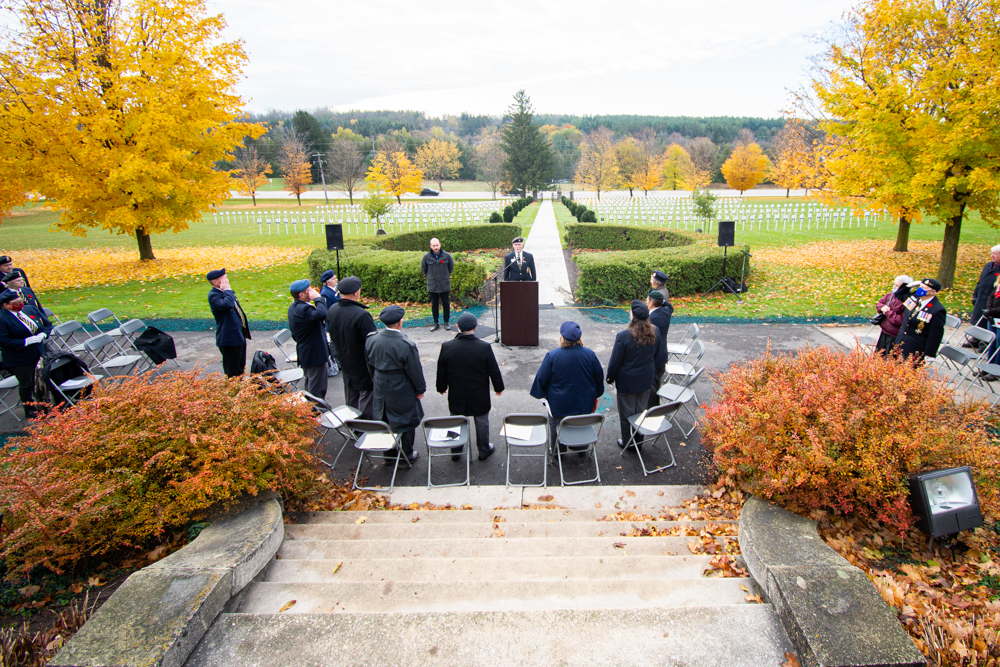
Attendees and Legion members stand at a Remembrance Day ceremony at the Wellington County Museum and Archives on Nov. 5. Photo by Jordan Snobelen
“It’s remembering sacrifice,” he said, his voice breaking with the heavy words. “A lot of sacrifice.
“They all provide valuable service—democracy isn’t free.”




